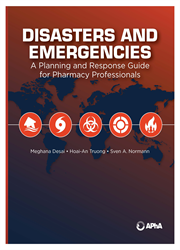Our Projects
Health Systems and Policy Research
Fiscal health assessments of behavioral healthcare providers in New York, U.S.
HEED Lab was contracted to conduct fiscal health assessments with behavioral healthcare providers in New York state. This is an ongoing project. Watch this space for further updates.
Mapping Serious Mental Illness across 50 U.S. States
Serious Mental Illness (SMI) is a complex and complicated topic with varying definitions and frameworks. HEED Lab researchers are analyzing SMI definitions and implementations across all 50 U.S. States and the District of Columbia. This study would inform policymakers and practitioners regarding the limitations of a nationwide standard of SMI benchmarking. Watch this space for further updates.
HouSMI (Housing insecurity and Serious Mental Illness) framework
The U.S. is experiencing twin crises of “Housing insecurity” and “Serious Mental Illness” (SMI). HEED Lab is working on a conceptual framework to identify measures that would enable policymakers and practitioners to better understand the available data, its limitations and the steps that need to be taken to tackle this challenge. Watch this space for further updates.
Downstream determinants of health across the United States in Behavioral health settings
Downstream determinants of health are an important consideration for behavioral care. This work provides the spatial distribution of the types of downstream determinants of health provided by behavioral care facilities in the U.S. Watch this space for further updates.
Emergency preparedness and Disaster response
Building system and community resilience during emergencies and disasters
This study described the unique potential of Medical Reserve Corps, volunteer groups across the U.S. in their roles in building community and systemic resilience post emergencies and disasters. Read more about this work here: Read more about this work here
Handbook on Pharmacists’ role in Disasters and Emergencies
 This handbook which was invited and sponsored by the American Pharmacists Association is the first of its kind to describe and train Pharmacy professionals in disaster and emergency preparedness, response, and recovery. Read more about this work here: “Disasters and Emergencies: A Planning and Response Guide for Pharmacy Professionals. American Pharmacists Association”.
This handbook which was invited and sponsored by the American Pharmacists Association is the first of its kind to describe and train Pharmacy professionals in disaster and emergency preparedness, response, and recovery. Read more about this work here: “Disasters and Emergencies: A Planning and Response Guide for Pharmacy Professionals. American Pharmacists Association”.
Framework on “Pharmacy Emergency Preparedness and Response (PEPR)”
This unique framework introduced for the first time the roles and responsibilities of various sectors of pharmacy in emergency preparedness and disaster response. Read more about this work here
Pharmacists role in Emergency preparedness in India
This study captured activities and attitudes of pharmacists in India during the COVID-19 pandemic. Read more about this work here
Capacity Building, Training, and Technical Assistance
Community pharmacists and naloxone dispensing
This study describes the implementation of naloxone dispensing by community pharmacists in Philadelphia County, PA. Read more about this work here
Continuing Education trainings on Disasters and Emergency Preparedness
These continuing education training sessions were aimed at empowering and educating pharmacists on Disaster and Emergency Preparedness. Sponsored by the American Pharmacists Association and the National Community Pharmacists Association.
Global Health partnerships
Food insecurity in the Eastern Indo_gangetic Plain (EIGP)
This study analyzed data from the Household Consumer Expenditure Survey to estimate prevalence of food insecurity in the EIGP region. Read more about this work here
Short-term medical missions and pharmacy
This commentary focused on the role of pharmacy in short-term medical missions. Read more about this work here
Innovative analysis of Optical Coherence Tomography data
These studies utilized circular functional analyses to identify structural phenotypes in OCT data collected at a nonprofit eye hospital in India to develop models for glaucoma prediction. Read more about this work here: https://pubmed.ncbi.nlm.nih.gov/34857787/ and https://pubmed.ncbi.nlm.nih.gov/37851657/
Emergency Preparedness and Response by Pharmacy professionals in India
In this study, we developed a survey to identify the gaps in preparedness and response by pharmacy professionals in India. Read more about this work here
Data-driven approaches to COVID-19
This study discussed policies and availability of data during the COVID-19 pandemic. Read more about this work here
From Social Vulnerability to Resiliency
This study discussed the use of a community resiliency planning framework. Read more about this work here
Multiple Sclerosis (MS) in India
This qualitative study identified drivers of access and affordability for patients living with MS. Read more about this work here
Aruru M, Pyne S. (2018). A Big Data Approach to Surveillance of Disease Outbreaks. Visleshana. 2(2):8-10. 27.
Nutrition Atlas
This study discusses nutrition epidemiology in India and the development of a nutrition atlas. Read more about this work here
Non communicable disease modeling and simulation
This study discusses childhood obesity and intervention effectiveness through modeling and simulation methodologies. Read more about this work here
Healthcare associated infections
This study discusses health analytics and disease modeling in the context of healthcare associated infections. Read more about this work here
Antimicrobial resistance
This study discusses health analytics and disease modeling in the context of antimicrobial resistance. Read more about this work here
Humanistic outcomes for oral cancer patients
This study evaluates the humanistic outcomes for oral cancer patients in India. Read more about this work here
Studies on hand hygiene, cleaning and disinfection
These studies examined cleaning and disinfectant practices across different regions. Read more about these works here: https://pubmed.ncbi.nlm.nih.gov/39965207, https://pubmed.ncbi.nlm.nih.gov/38673382/ and https://pubmed.ncbi.nlm.nih.gov/39293424/
Socioeconomic Factors and HIV Risk in Kenya
This study analyzed nationally representative survey data to examine how individual, household, and community socioeconomic resources relate to HIV serostatus in Kenya. Read more about this work here
Perinatal Risk for Mental Disorders and Suicidal Ideation in Paraguay
This nationally representative study highlights the critical role of psychosocial factors, such as pregnancy intention and marital status, in shaping perinatal mental health. Read more about this work here


